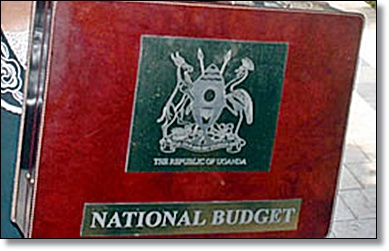Uganda: Budget Priorities for Competitiveness

 |
As a young man in the early 90’s, I used to see many people hurdled on radios at small trading centers listening to the budget speech. Delving deeper, their interest was and largely remains announcement of tax cuts on basic commodities like salt, Kerosene, soap, sugar, Kimbo (cooking oil) and farm implements such as the jembe (hoe) and pangas among others. This is the true story of many Ugandans across the country.
Citizens are exceedingly unaware of the role they can play in influencing budget allocations and monitoring budget implementation, yet if informed and involved, they form the core of effective budget accountability.
What is now called the ‘budget circle consultative process’ a supposed democratic platform for Citizen participation largely remains a ritual. We have participation power without decision power. Some private sector interests have been considered (especially manufacturing and services sectors) but how about farmers who have been crying for double digit allocation for the last 14 years? Farmers have been voicing this concern in the consultative processes; only to be slapped by 3% to 4% allocation, yet again! Even the special support of UG Shillings 90 Billion, Agricultural Fund, that was provided to ensure that interest rates in the sector are not more than 10 % per annum did not impact the fortunes of farmers. There remains no transparency, no information on how this fund can be accessed and no clear and simple guidelines on how a farmer from Amudat district, Rukungiri, Kenjojo, for example, can access this money. All we hear is that the money was finished! Who took it? What was it used for? How many jobs were created?
Looking at the budget priorities memoranda from productive sector agencies and Ministries of Government, one important thing is amiss! Jobs, jobs. The country wants to see budget proposals, for example, from the Ministry of Trade and Industry that clearly state the money required, how many jobs the Ministry will create and a projection of contribution to the GDP in a given year. But what do we hear? Concerns about mismatch between budget allocations and actual release and failure by government departments and ministries to absorb budgeted and released resources. What do we see? Services budgeted for and approved not reaching the people and tertiary institutions churning out 300,000 graduates with only 40,000 jobs available. This is a crisis!
By Morrison Rwakakamba
Country Program Manager – Twaweza
[email protected]
